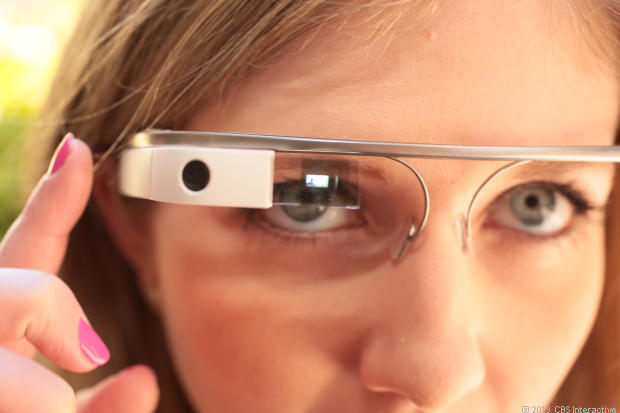Microsoft and Google are developing programs that can track our behavior. Future developments; The number of CCTV cameras being installed across the country is on the rise – One camera for every 11 people; Biometric scanner Packed lunches have now been banned, school cafeterias are now putting RFID chips around pupils' necks so they can be tracked at all times and of course George Osborne has said:Jawbone close-upThe new bracelet worn on the wrist constantly monitors the wearer's actions and tells them how much they should eat and sleep.
and now, Google Glass The computerized glasses are said to be a stepping stone to efforts to implant a microchip in your brain, giving you access to Google anytime, anywhere. Google is betting its future on a new service that uses information about registered users to automatically predict their search needs and present them with the data they want. Apparently, users won't have to think for themselves.
Perhaps once Google has access to the minds of its consumers, it will be able to monitor our thoughts in the name of serving our needs and answering our questions. Currently, this technology is being developed to enable the mentally and physically disabled to operate certain machines, which will undoubtedly benefit their quality of life, but the company has made no secret that it envisions this technology being embedded in the minds of every person on the planet.
“To enable this interaction, we need to do this better in the brain,” said Ben Gomez, Google's vice president of search. “We can't wait for that to happen, but the technology part needs to evolve.”
A few weeks ago, it was reported that the NSA was accessing data collected by search engines such as Google. Operators of PRISM, the program used to collect such data, claimed that they helped companies like Google access the data, a claim that Google denies.
The point is, however it happened, these companies are collecting our information and acting as government intelligence, giving governments access to our personal data. This means that chips in our heads not only allow governments to know what we think and feel, but, worryingly, give Big Brother the ability to tell us what to think and feel. Google data is sent directly to users' heads, and the inevitable overreliance on this data and lack of verification leads many users to take it for granted that the data being sent to their heads is absolute fact.
UK schools today are being targeted with biometric and RFID technology, presumably to encourage children to accept these intrusions relatively easily and to encourage future generations to accept them too, as they will be more likely to accept them in the workplace if they enter the workforce. Google's new invention, as with RFID and biometrics, will no doubt be marketed to a younger generation who are more likely to accept these intrusions and have access to Facebook at any time.
No doubt Google Glass will be the next must-have fashion accessory this Christmas, bringing tech-seekers one step closer to the inevitability of having a microchip implanted in their brain. If only Google's motives were as transparent as the Glass product it produces.


